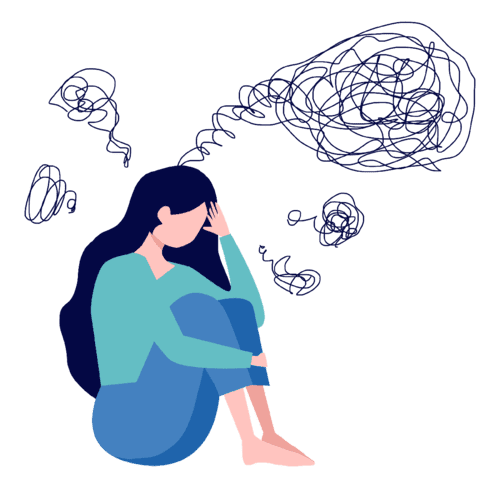Malevolence OCD Assessment
Free Malevolence OCD Assessment

What is Malevolence OCD Assessment?
Malevolence OCD, a subtype of Obsessive-Compulsive Disorder (OCD), involves distressing obsessions centered around the fear of harboring malicious or harmful intentions towards others. Those with this form of OCD experience intrusive thoughts that they might inadvertently harm loved ones or strangers, despite lacking any genuine desire to do so. They engage in compulsive behaviors to counteract these fears. Assessment entails evaluating the frequency, intensity, and impact of these obsessions and compulsions on daily life. Professional diagnosis is crucial to differentiate Malevolence OCD from other anxiety disorders and develop a tailored treatment plan, often involving cognitive-behavioral therapy and possibly medication.
Who can benefit from this Malevolence OCD Assessment?
The Malevolence OCD Assessment can benefit individuals who experience distressing and intrusive thoughts related to causing harm or harm coming to others, despite lacking any actual intent or desire to harm. This assessment is valuable for those seeking to understand if their obsessions align with Malevolence OCD, a subtype of Obsessive-Compulsive Disorder. It aids in identifying symptoms and provides insight into appropriate therapeutic interventions, such as Exposure and Response Prevention (ERP) therapy, cognitive restructuring, and mindfulness techniques. Timely identification and treatment based on this assessment can lead to improved mental well-being and a reduction in the impact of these distressing obsessions on daily life.
Malevolence OCD Assessment Accuracy
Assessments for Malevolence OCD, a subtype of Obsessive-Compulsive Disorder, aim to determine the presence and severity of obsessions related to harmful or malicious intent. These assessments typically involve evaluating the frequency, intensity, and distress caused by such obsessions, along with associated compulsive behaviors. However, accurate assessment requires a comprehensive clinical evaluation by a qualified mental health professional, as self-reporting might not fully capture the nuances of this complex condition. Clinicians use structured interviews, standardized scales, and in-depth discussions to ensure accurate diagnosis and develop appropriate treatment plans tailored to the individual’s needs.
Types of Malevolence OCD Assessment
Nature of Obsessions:
The professional will inquire about the specific content of the obsessions. This might involve questions about the types of harm or violence the individual fears, the circumstances in which these thoughts occur, and the level of distress they cause.
Triggers and Patterns:
Assessing the triggers that provoke these intrusive thoughts can help identify patterns and situations that exacerbate the obsessions. This information is crucial for developing exposure and response prevention (ERP) strategies.
Compulsions:
Understanding the compulsions or mental rituals that the individual engages in to reduce the anxiety caused by the obsessions is important. These might include mental checking, seeking reassurance, avoidance behaviors, or other rituals aimed at neutralizing the perceived threat.
Impact on Daily Life:
Evaluating how Malevolence OCD impacts the individual’s daily functioning, relationships, and overall well-being is essential to determine the severity of the condition.
Duration and Frequency:
The professional will inquire about the frequency and duration of the intrusive thoughts and compulsions. This information helps gauge the intensity of the OCD symptoms.
Safety Concerns:
If the obsessions involve thoughts of harm towards others, the professional will assess whether there are any genuine safety concerns and provide appropriate interventions if necessary.
Handling Malevolence OCD Issues
Malevolent or Harm OCD, also known as Harm Obsessions, is a specific subtype of Obsessive-Compulsive Disorder (OCD) where individuals experience distressing and intrusive thoughts or fears about causing harm to themselves or others. These thoughts are often counter to the person’s true intentions and values. If you’re dealing with Malevolent OCD, here are some strategies that might be helpful:
- Recognize the Intrusive Nature: Understand that these thoughts are a symptom of your OCD and not reflective of your true desires or intentions. They are distressing and unwanted.
- Avoid Reassurance Seeking: It’s common for individuals with OCD to seek reassurance from others that they won’t act on their intrusive thoughts. However, seeking reassurance can actually reinforce the obsession. Try to resist the urge to seek reassurance from others or engage in compulsive behaviors.
- Practice Mindfulness: Mindfulness techniques can help you observe your thoughts without judgment and recognize them as OCD-related rather than accurate reflections of reality.
- Label the Thoughts: Instead of reacting to the thoughts with fear or anxiety, label them as “OCD thoughts” or “intrusive thoughts.” This can help you distance yourself from the thoughts and reduce their power over you.
- Exposure and Response Prevention (ERP): ERP is a highly effective therapy for OCD. Work with a qualified therapist to gradually expose yourself to situations that trigger your malevolent obsessions while resisting the compulsion to perform rituals or reassurance-seeking behaviors.
- Challenge Cognitive Distortions: OCD often involves distorted thinking patterns. Challenge catastrophic thinking and unrealistic beliefs that your obsessions will inevitably lead to harm.
- Seek Professional Help: A therapist experienced in treating OCD can guide you through ERP and provide strategies specific to your malevolent obsessions.
- Practice Self-Compassion: Be kind to yourself and recognize that dealing with Malevolent OCD is challenging. Don’t blame yourself for having these thoughts.
- Journaling: Keeping a journal can help you track your progress, identify triggers, and monitor any improvements over time.
- Group Therapy or Support Groups: Connecting with others who have similar experiences can provide validation and reduce feelings of isolation.
- Medication: If your symptoms are severe, consider discussing medication options with a psychiatrist who specializes in OCD treatment.
- Routine and Structure: Establishing a regular daily routine can help reduce anxiety and provide a sense of stability.
Remember that recovery from Malevolent OCD is possible with the right treatment and support. It might take time, effort, and patience, but many individuals have successfully learned to manage and reduce the impact of their OCD symptoms. Working with a mental health professional who specializes in OCD treatment is a crucial step toward finding relief.

